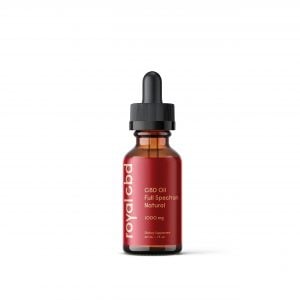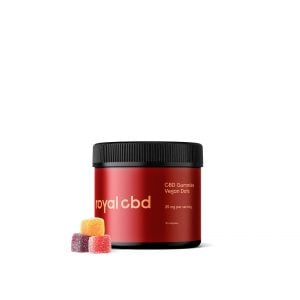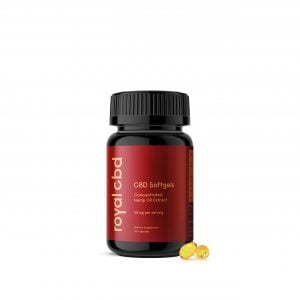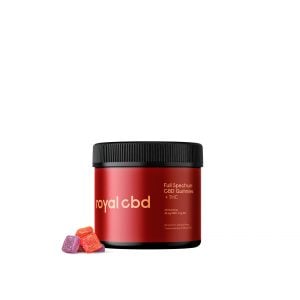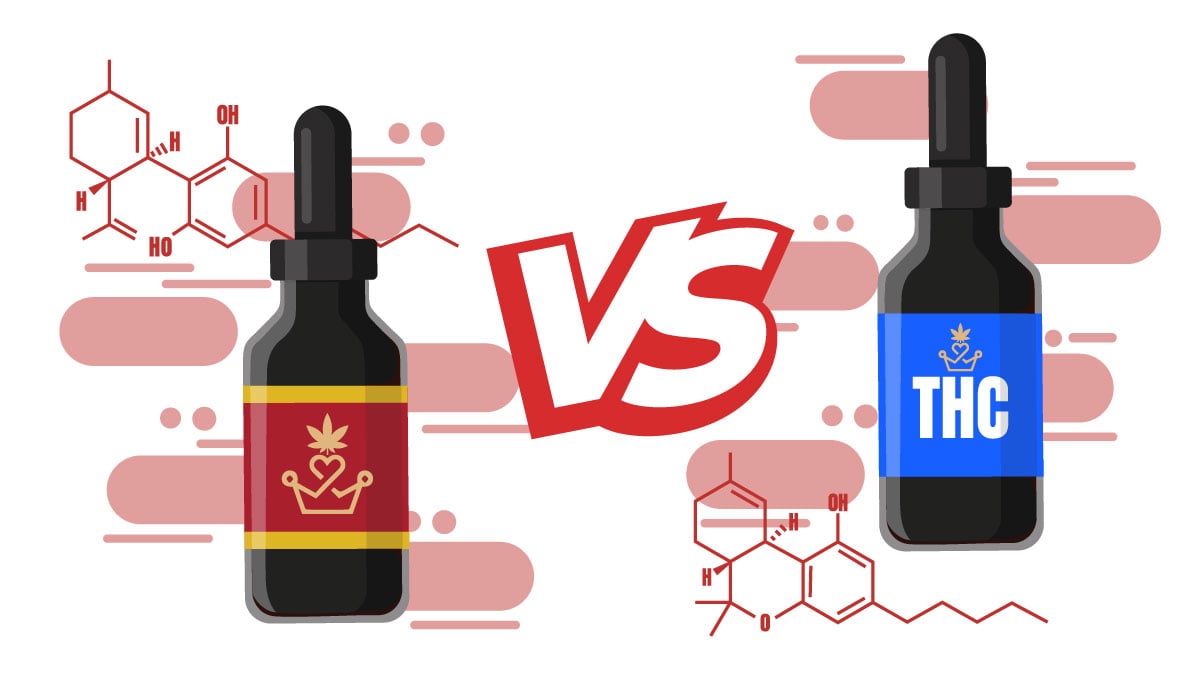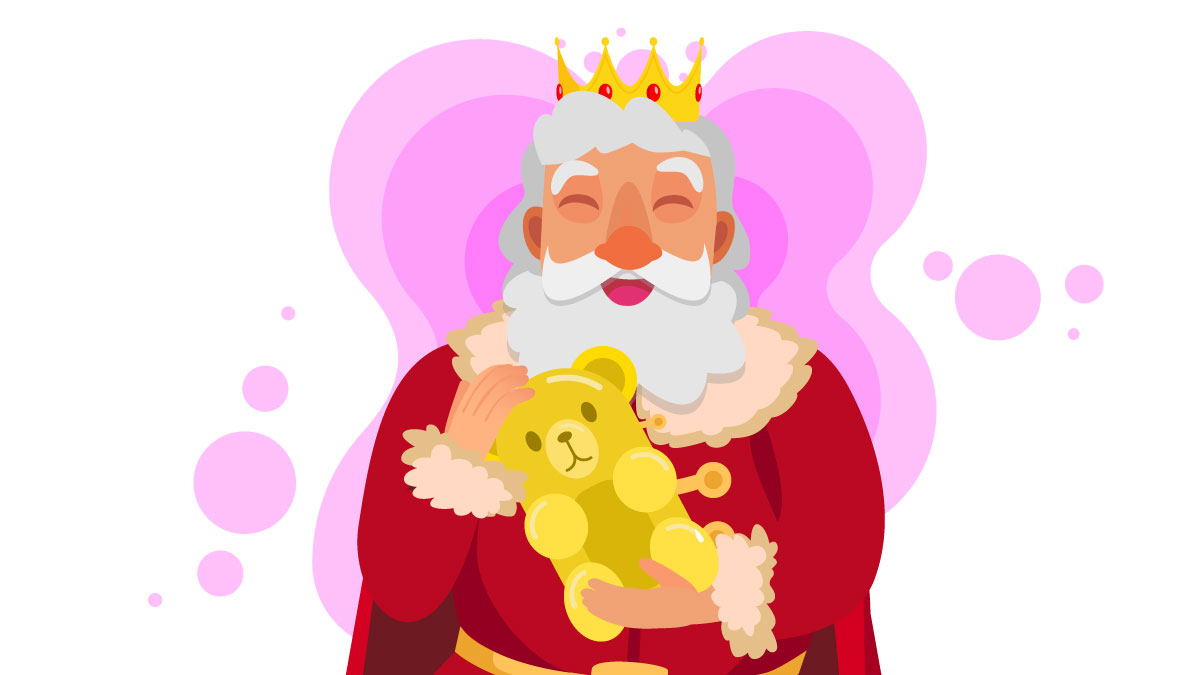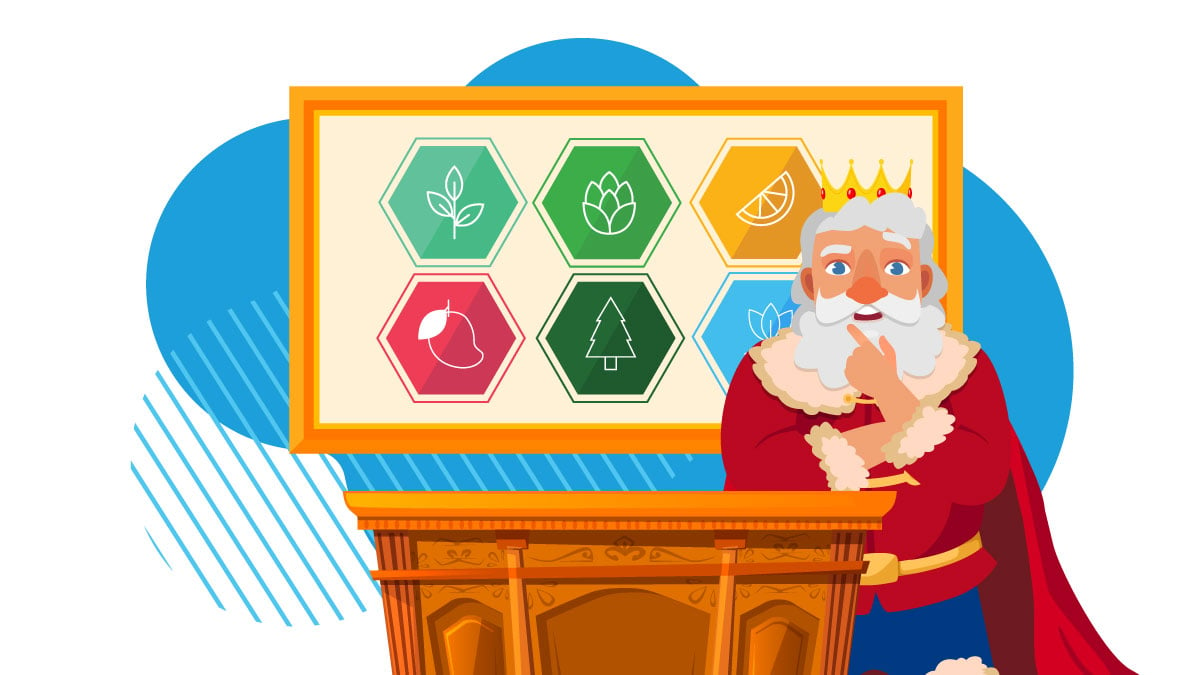As CBD is taking the world by the storm, people no longer associate cannabis solely with CBD. Customers are more conscious about their choices, including the difference between CBD vs THC, the two major active compounds in cannabis plants.
CBD and THC are similar to the cannabinoids produced naturally by your body. Their chemical makeup allows them to engage with cannabinoid receptors in the endocannabinoid system, producing an array of therapeutic and recreational effects.
However, despite their apparent similarity, CBD and THC use different pathways to interact with the endocannabinoid system.
This article will cover everything you need to know about CBD vs THC; we’ll explain the most vivid differences between these two cannabinoids, highlight their applications, and discuss how they can work together to regulate essential functions in your body.
A Brief Overview of CBD and THC
CBD and THC are almost identical when it comes to their molecular structure. They’re made from 30 hydrogen atoms, 21 carbon atoms, and 2 oxygen atoms. However, these atoms are arranged differently, which means they ultimately have different properties.
If this is your first time exploring different cannabinoids, the next section will introduce you to the basic information about CBD and THC
CBD
CBD stands for cannabidiol, one of over 100 cannabinoids discovered and synthesized by scientists. It’s also one of the best-researched compounds in the cannabis plant.
CBD is a non-intoxicant, meaning it won’t produce the psychoactive high associated with marijuana. Hemp-derived CBD products contain up to 0.3% THC; they’re legal in all 50 states under federal law thanks to the 2018 Farm Bill.
Cannabidiol is also recognized for a variety of therapeutic properties in cannabis plants. That’s because consuming CBD comes with a plethora of health benefits. When talking with CBD users, you’ll most likely hear them praising it for health and wellness rather than for recreational qualities.
THC
For most cannabis consumers, THC (delta-9-tetrahydrocannabinol) doesn’t need an introduction. Even people who don’t use marijuana are familiar with THC.
THC is the compound responsible for the euphoric, analgesic, and stimulating effects of cannabis use, also known as the “marijuana high.”
While THC isn’t the only cannabinoid with intoxicating properties, it’s the only one that occurs in concentrations high enough to get the user high. For this reason, THC has long been linked to recreational use.
Nevertheless, THC has plenty of documented health benefits as well. In fact, its cognitive and mood-altering properties can be used medicinally for an array of mental and physical conditions.
CBD vs THC: The Key Differences
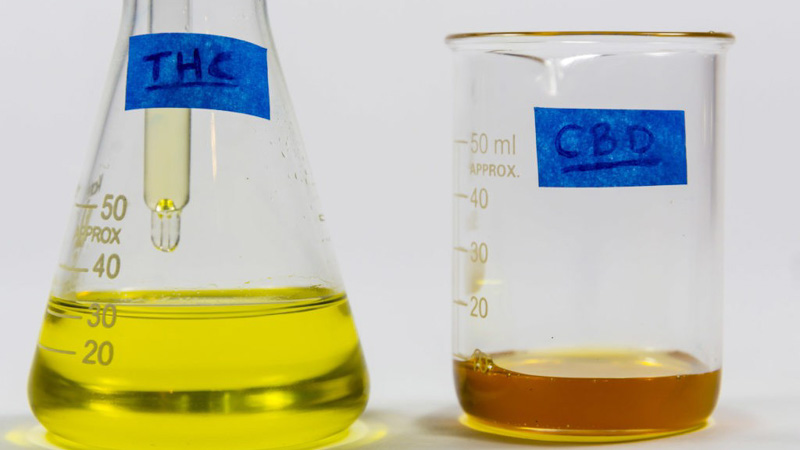
It’s not easy to summarize the differences between CBD vs THC in a nutshell, but here are the most important highlights:
CBD
- CBD is a non-intoxicant; it won’t make you feel high in a way THC does.
- CBD works on more than 60 molecular pathways, but it doesn’t directly bind to any of the cannabinoid receptors.
- CBD signals the body to produce and maintain higher levels of its endocannabinoids.
- CBD can block the psychoactive effects of THC.
- When people talk about CBD, they put more emphasis on medical, health, and wellness benefits
- CBD doesn’t cause toxicity regardless of the dose
- CBD is safe for animals
- CBD can be extracted from hemp and marijuana
- Hemp-derived CBD is federally legal
THC
- THC will produce the psychoactive buzz.
- THC is often linked to recreational cannabis use, although it has many health benefits too
- Lower doses of THC can reduce anxiety, but higher doses can elevate this feeling due to its biphasic nature
- THC binds to cannabinoid receptors and uses neurotransmitters to send signals to the brain.
- THC can be extracted only from marijuana.
- THC is only legal in Canada and Uruguay. In the USA, 11 states have legalized recreational use of cannabis, with 30 states having medical marijuana programs for patients.
CBD vs. THC: What You Need To Know About Their Effects on the Mind and Body
The differences between CBD vs THC that we’ve just highlighted should only be used as a quick point of reference. You can actually use CBD and THC for both medical and recreational purposes depending on your goals.
Let’s start by discussing the psychoactive nature of both cannabinoids.
How Do CBD and THC Affect the Mind?
The majority of cannabis users describe the high from using THC as a pleasant sensation. They often report sensory stimulation, elevated mood, euphoria, a clear state of mind, and even signs of improved cognition. In low and moderate doses, these feelings are well balanced. However, when you take THC in very high doses, you can experience the so-called THC backfire that may lead to anxiety and paranoia.
CBD, on the other hand, doesn’t cause intoxication, and its range of emotional effects is triggered less directly. CBD can ease your mind, reduce anxiety, and improve your response to daily stressors. To make things even better, CBD can counter a strong reaction to THC. Recreational cannabis users often take CBD as a counterweight to THC’s high.
But, both compounds affect your mind in some way, don’t they?
Doesn’t that mean they’re both psychoactive?
In a way, yes.
Every substance, event, or even person that can impact your emotions falls into the definition of “psychoactive.”
Does your laundry machine make you angry when it glitches?
Guess what: it’s psychoactive.
A better way to describe the differences between CBD vs THC is “intoxication.” The marijuana high involves an array of intoxicating effects, such as the aforementioned euphoria and a giggly mood. Therefore, THC is both psychoactive and intoxicating.
CBD doesn’t induce the euphoric high, so it’s not intoxicating. However, it is psychoactive because it changes your anxiety levels and helps you maintain emotional stability.
How do CBD and THC Affect the body?
CBD products are better if you’re looking for more of a body-centered experience. It reduces inflammation, relieves tension, helps people overcome anxiety, and reduces the amount of stress experienced throughout the day.
The effects of THC-rich products depend on their cannabinoid profile as well as the ratio between different terpenes. Some cannabis strains are more body-focused whereas others produce more of a cerebral high. Usually, Sativa strains are more energetic and focused in the brain; Indica strains produce a body high. Both types of effects from THC can be highlighted by adding more CBD to your routine.
CBD vs THC: Potential Therapeutic Applications
THC and CBD affect different parts of the endocannabinoid system. THC stimulates CB1 and CB2 receptors by binding to them and producing an array of its effects. CBD has little effect on both. Instead, it works on multiple receptor-independent pathways to regulate the endocannabinoid system.
Health Benefits of CBD and THC

THC and CBD can support each other when it comes to their health benefits. However, they have a completely different way of engaging with your body.
CBD has strong anti-inflammatory effects, bolstering the immune system, and helping patients manage a variety of ailments. Many health conditions involve inflammation, so lowering this state can contribute to the effectiveness of CBD supplementation.
THC has neuroprotective properties and its benefits are mostly associated with mental health. It can also reduce pain, help patients fight insomnia, eating disorders, and reduce the number of malignant cells in the body.
CBD vs THC: Mental Effects
CBD has proven to effectively reduce anxiety and help individuals cope with stress. Furthermore, CBD is often used to relax the body after a difficult day, which supports healthy sleep cycles. Similar to THC, CBD has been shown to have neuroprotective properties that keep the brain in good shape.
Studies suggest that THC has neuroprotective effects too. Scientists have started to investigate these properties in preventing and treating Alzheimer’s Disease with THC. The cannabinoid can also improve a person’s focus and elevate mood when taken in low and moderate doses.
CBD vs THC: Physical Effects
Both CBD and THC are known to alter pain transmission to the brain. They can reduce the discomfort caused by inflammation, migraines, and injuries. Moreover, CBD brings up a relaxing sensation to your body, but it doesn’t produce a mellow body high linked to using THC.
On the whole, both cannabinoids can benefit your health, but they use different channels for it.
Potential Medicinal Use According to Recent Research
CBD:
- Addiction
- Anxiety
- Bacterial growth
- Blood sugar imbalances
- Bone density loss
- Eating disorders
- Inflammation
- Muscle spasms
- Nausea
- Neurodegeneration
- Pain
- Psychosis
- Seizures
THC
- Anxiety
- Chronic stress
- Inflammation
- Insomnia
- Lack of appetite
- Muscle spasticity
- Nausea and vomiting
- Neurodegeneration
- Pain
- PTSD
- Seizures and convulsions
- Tumor growth
CBD vs. THC: Potential Side Effects
CBD has little to no side effects when taken in regular doses. Some people report dry mouth, dizziness, sedation, and changes in appetite. On very rare occasions, diarrhea might occur. However, even high daily doses, such as 1500 mg, are well-tolerated in humans. If you take CBD with medications prescribed by a doctor, it may cause interactions by preventing your liver from breaking down most of the pharmaceuticals.
When it comes to THC, cannabis high is the desired effect for many individuals. However, high doses of THC are well known for causing anxiety and paranoia. On top of that, consuming too much THC can extremely stimulate your appetite; whether you consider these effects good or bad depending on your habits around food.
Neither CBD nor THC can cause a fatal overdose because they don’t interact with the brain stem area that controls breathing.
Legal Status of CBD vs. THC
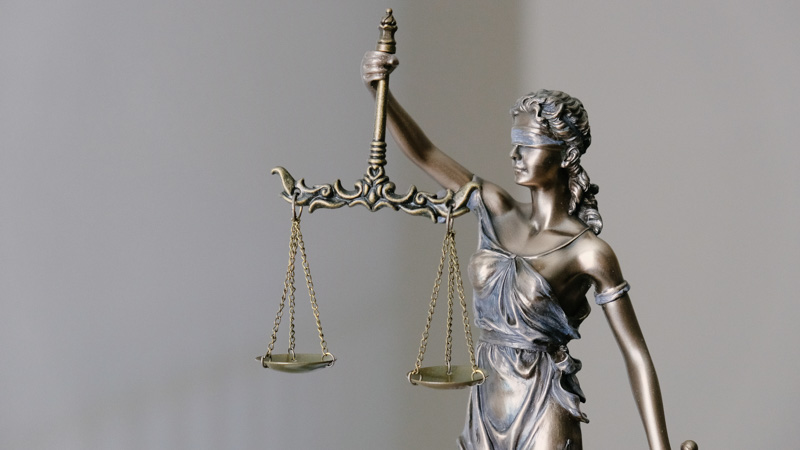
As mentioned earlier, hemp-derived CBD is legal in all 50 states under the 2018 Farm Bill. The new law removed hemp from the list of controlled substances, where it was earlier classified in the same category of drugs as heroin or LSD.
Hemp is now legal to grow and process for commercial purposes, including paper, clothes, building materials, fuel, food, and health supplements such as CBD oil.
As long as your CBD product contains less than 0.3% THC, you shouldn’t have any trouble with the law.
The laws surrounding THC and marijuana are stringent in most countries in the world. Only Canada and Uruguay have fully regulated the recreational use of the plant.
The United States has a bumpy history with marijuana. Since its prohibition in 1937, 11 states have legalized the recreational use of marijuana, and 33 have medical marijuana programs for patients. However, federal law still considers marijuana a Schedule I substance. According to the government, marijuana has no medical use and carries a high potential for abuse, which stays in stark contrast with recent research.
When buying CBD online, make sure that it has been sourced from hemp unless your country or state allows the adult-use of marijuana.
The Entourage Effect: “CBD Plus THC” instead of “CBD vs. THC”
CBD and THC have similar benefits despite a few significant differences. Instead of focusing on “CBD vs THC,” think of CBD and THC as of two synergistic molecules that can benefit from each other’s effects.
Similar to how CBD can lessen the psychoactive high from THC, some of the effects of CBD are more potent if the two cannabinoids are taken together. This mutual interaction between CBD and THC is known as the “entourage effect” or “ensemble effect.” According to neurobiologists, cannabinoids, terpenes, and other compounds in cannabis can show their full potential when they occur next to one another.
That’s why we use full-spectrum extracts at Royal CBD. Capturing the entire phytochemical profile of the plant, along with trace amounts of THC allows us to increase the efficacy of our products without producing psychoactive effects associated with marijuana use.
Key Takeaways
The differences between CBD vs THC are real, and the ratio between these two compounds can impact your experience with cannabis products. However, CBD and THC should rather be looked at as good friends rather than competitors. Each of them has its unique benefits, but together, they allow you to experience the full potential of full-spectrum extracts.
If you live in a state where marijuana is illegal for recreational use, you can still enjoy the benefits of full-spectrum CBD with hemp-derived products. CBD oils produced from hemp contain less than 0.3% THC, which is not enough to get anyone high, but it still contributes to the entourage effect.
Always try to see the bigger picture!
